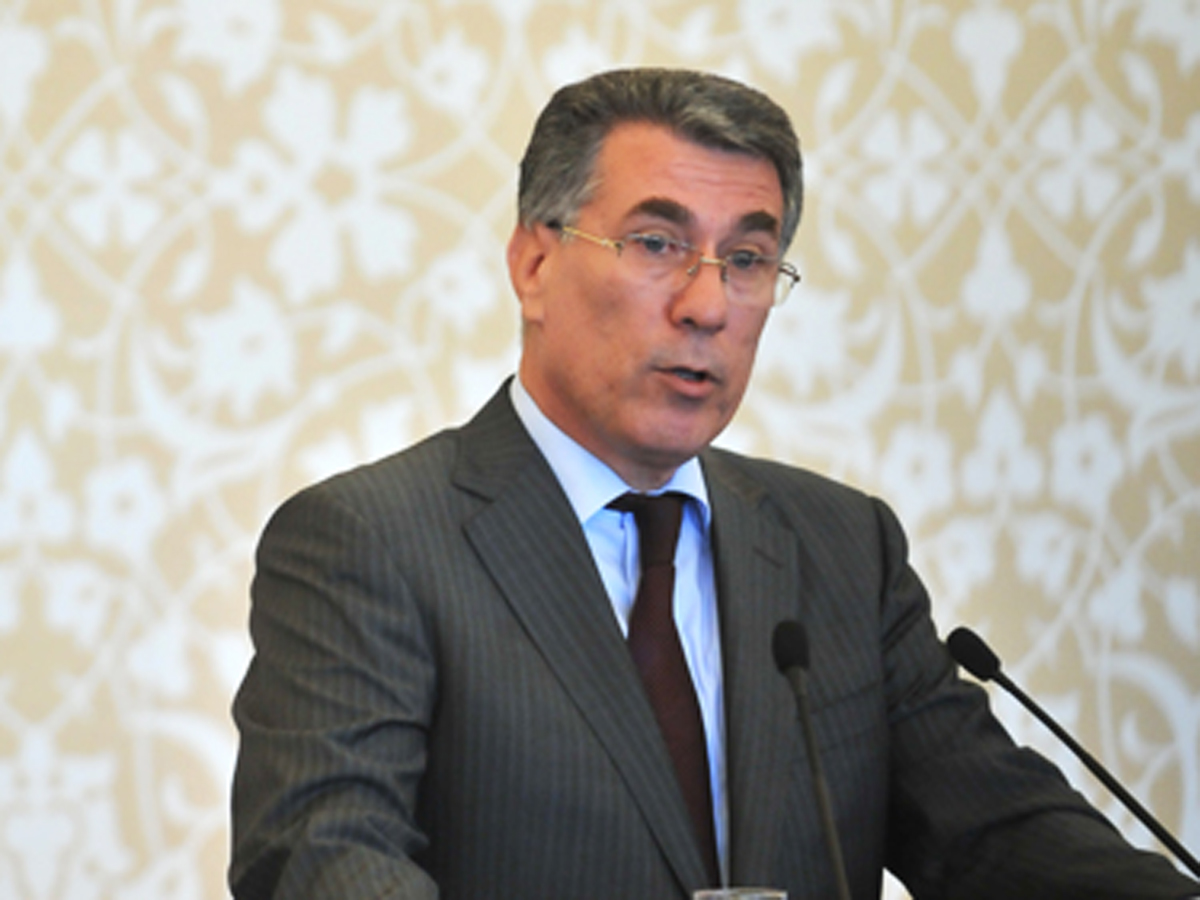Baku, Azerbaijan, Feb. 26
By Ilkin Izzet - Trend:
The Khojaly events must be fairly assessed, the First Deputy Speaker of the Azerbaijani Parliament Ziyafat Asgarov told reporters Feb. 26.
He said that the OSCE Minsk Group three co-chairing countries recognize the territorial integrity of Azerbaijan.
"But none of them has exerted any pressure on Armenia so far," he said. "The US and the EU imposed sanctions on separatists in Ukraine."
"But such actions were not imposed on the separatist regime of Nagorno-Karabakh," he said. "On the contrary, the US assisted the Armenian separatists by providing them with weapons. We want the whole world to know about this. There must not be such double standards. The Azerbaijani people's appeal to justice must be heard. If the Khojaly genocide committed against Azerbaijani people is not fairly assessed, there may be more such crimes in the future."
"The presidents of Azerbaijan and Armenia met several times and negotiated," he said.
He said that Azerbaijan urges Armenia to withdraw from the occupied lands of Azerbaijan, but it does not do this.
"In this case, the mediators begin their activity," he said. "They tell both sides to resolve this problem themselves or that they will help the sides come to an agreement. If we can not come to an agreement, then why do we need these mediators? If these mediators recognize Azerbaijan's territorial integrity, they must exert pressure on Armenia. But they come to the region as tourists and there are no results. This is the problem."
He said that President Aliyev has repeatedly said that Azerbaijan supports peaceful settlement of the Nagorno-Karabakh conflict.
"Azerbaijan has a strong army," he said. "If we once again see that Armenians are not interested in resolving this problem, then we will no longer tolerate their whims."
The conflict between the two South Caucasus countries began in 1988 when Armenia made territorial claims against Azerbaijan. As a result of the ensuing war, in 1992 Armenian armed forces occupied 20 percent of Azerbaijan, including the Nagorno-Karabakh region and seven surrounding districts.
On February 25-26, 1992, the Armenian armed forces, together with the 366th infantry regiment of Soviet troops stationed in Khankendi committed an act of genocide against the population of the Azerbaijani town of Khojaly.
As a result of the massacre, some 613 people were killed, including 63 children, 106 women and 70 old people. Eight families were totally exterminated, 130 children lost one parent and 25 children lost both. A total of 487 civilians became disabled as a result of the onslaught. Some 1,275 innocent residents were taken hostage, while the fate of 150 people remains unknown.
The two countries signed a ceasefire agreement in 1994. The co-chairs of the OSCE Minsk Group, Russia, France and the U.S. are currently holding peace negotiations. Armenia has not yet implemented the U.N. Security Council's four resolutions on the liberation of the Nagorno-Karabakh and the surrounding regions.
Edited by CN






